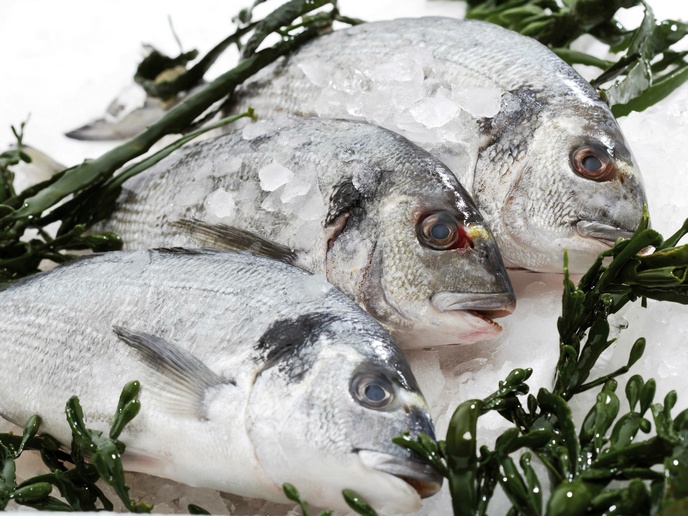Tackling aquaculture’s health challenges with seaweed
A recent study carried out by Norwegian and Spanish researchers explores the role that seaweed could play in reducing intestinal inflammation in farmed fish. Supported by the EU-funded BlueRemediomics and ALEHOOP projects, the research may help to address the challenges the aquaculture industry currently faces in maintaining fish health. The investigation revolves around a family of enzymes called matrix metalloproteinases (MMPs). Commonly found in vertebrates, these enzymes play vital roles in many different processes, such as tissue remodelling, a process that directs the restoration of tissues and organs. However, MMPs have also been implicated in different inflammatory disorders, including those affecting the intestine. The research team set out to discover whether including specific species of seaweed with MMP-inhibitory properties in the diet could reduce the intestinal inflammation commonly observed when plant-based ingredients are incorporated into fish feed.
The value of seaweed extracts
Three carnivorous fish species were chosen for the study: Atlantic salmon, European seabass and gilthead seabream. The researchers added extracts from both fresh and processed brown and red seaweeds to the diet and found that these bioactive compounds significantly inhibited intestinal MMPs in these three species. The team also performed in vitro assays simulating the digestive conditions of Atlantic salmon and gilthead seabream. They discovered that experimental feeds containing algal meals maintained these inhibitory effects on intestinal MMPs. “Our in vitro simulations of the digestive process in Atlantic salmon and Mediterranean gilthead seabream demonstrate their high efficacy,” reports co-author Neda Gilannejad, senior researcher at BlueRemediomics project partner NORCE Norwegian Research Centre AS, in an article titled ‘Tide of change: Can seaweed help with fish inflammation?’ by Jane Byrne, posted on ‘Feed Navigator’. The research highlights the significant benefits that aquaculture can gain by harnessing the potential of resources such as seaweed. “The findings demonstrate the importance of bioprospecting marine resources to address aquaculture’s pressing health challenges,” remarks Gilannejad in the same article. The ALEHOOP (Biorefineries for the valorisation of macroalgal residual biomass and legume processing by-products to obtain new protein value chains for high-value food and feed applications) project that supported this research ended in February 2025. Over a period of almost 5 years, it demonstrated the feasibility of biomass management and protein extraction from legume by-products, and it validated the use of green macroalgae and other plant-based proteins in animal feed and human food products. The BlueRemediomics (BlueRemediomics: Harnessing the marine microbiome for novel sustainable biogenics and ecosystem services) project, which also supported this study, has been developing novel tools and approaches to explore marine microbiome data. By bringing together experts from all over Europe and South Africa, it aims to drive the discovery and production of high-value sustainable marine microbiome-based products, processes and services. The project ends in November 2026. For more information, please see: BlueRemediomics project website ALEHOOP project website
Keywords
BlueRemediomics, ALEHOOP, aquaculture, fish, fish farming, seaweed, intestine, intestinal, inflammation, matrix metalloproteinase



